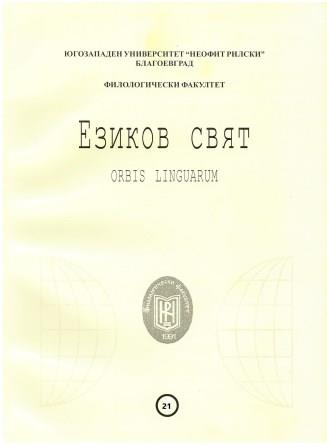RUSSIAN FORMALISM AND DEFAMILIARIZATION IN LANGUAGE
RUSSIAN FORMALISM AND DEFAMILIARIZATION IN LANGUAGE
Author(s): Flamur Maloku, Merxhan AvdyliSubject(s): Language and Literature Studies, Philology
Published by: ЮГОЗАПАДЕН УНИВЕРСИТЕТ »НЕОФИТ РИЛСКИ«
Keywords: Formalists; Protagonist of Literature; Text; Literature; Linguistic; Defamiliarization in Language
Summary/Abstract: Formalists broke a category of previous studies that did not rely on the text, by moving the object of study from the outside of literature, to the inside of literature. As pioneers of this study method, they built concepts that would crystallize only later. They represented goals that were bigger than their possibilities and this happened because, in general, they applied linguistic studies in their literary studies, while it is known that language or linguistics in the ‘20s, XX century, was in its first phase of development. But language made them very connected to the text, perceiving the tool as the main protagonist of literature. This connection with the text would give them a stronger resilience in comparison to other methods that distance from the text, by going to abstractions, without a pure reference to the text. If N. Fraj’s opinion that when we analyze literature we speak of literature and when we assess it we speak of ourselves is to be considered reasonable, then we can say that Russian formalists, in general, spoke about literature, not about themselves. At all costs, they sought to distance themselves from outside of literature, regardless of the form of study it would manifest itself, as the study of the author, the reader, or the one studying. To them, text and its characteristics were everything.
Journal: Езиков свят - Orbis Linguarum
- Issue Year: 21/2023
- Issue No: 1
- Page Range: 042-046
- Page Count: 5
- Language: English

